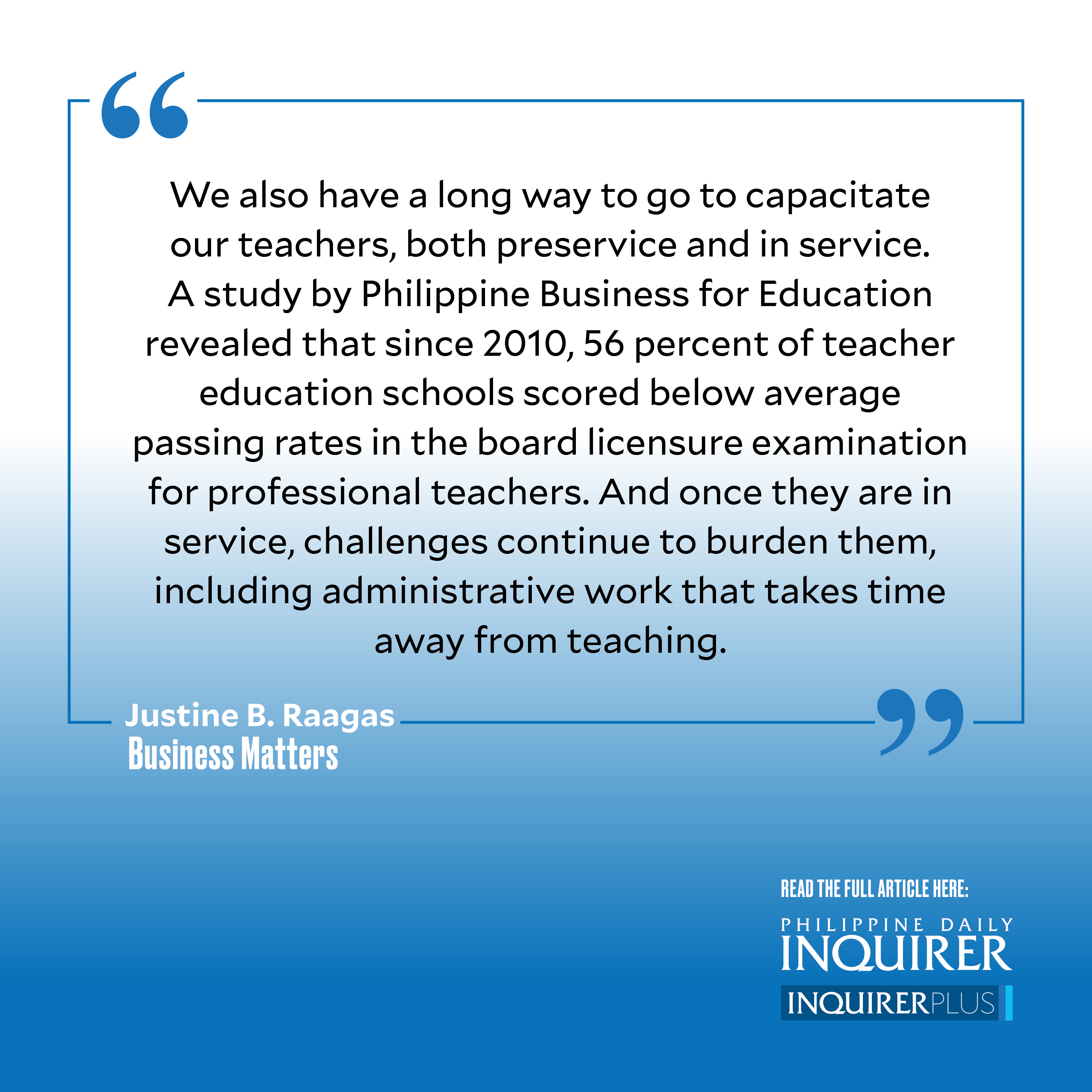Reimagining Philippine education
Education is our passport to employment and a stable future. Ask any parent about their dream for their child and it will always be: to finish school, earn a diploma, land a job, and lead a good life. A priceless inheritance that no one can take away. However, with many students graduating and lacking the competencies needed for employment, we need to ask ourselves—are we doing enough to prepare learners for the future? Are we equipping them with enough skills to thrive in the workplaces of today and tomorrow?
The passage of the K-to-12 law promised quality education and life-ready graduates, but 10 years into its implementation, challenges remain, keeping us from realizing what was promised.
Many of our senior high school students are not able to find jobs upon graduation. Even those with college degrees face similar challenges, with many of them having to take additional programs to upskill in order to find a job. Worse, students in their early years are not even learning properly.
One in every three Filipino children under the age of 5 are malnourished and stunted, affecting their capacity to learn. So by the age of 10, it is no longer a surprise that 90 percent of our learners cannot even read a simple text.
We also have a long way to go to capacitate our teachers, both preservice and in service. A study by Philippine Business for Education (PBEd) revealed that since 2010, 56 percent of teacher education schools scored below average passing rates in the board licensure examination for professional teachers. And once they are in service, challenges continue to burden them, including administrative work that takes time away from teaching.
Our resources are not enough to support teaching and learning, as we still haven’t met the international recommendations for education budget allocation. We continue to play catch-up in education spending, and we have not yet fully harnessed the resources that the private sector can offer.
These challenges in the education system necessitates work that is coordinated, collaborative, intentional—and with the Filipino learner at the heart of it all. This is precisely why during PBEd’s Higher Education Summit last Feb. 16-17 in Mactan, Cebu, over 80 leaders from the government, industry, academe, and civil society worked together to discuss the most pressing issues in education and employability, and how we can all work together to address them. These hurdles in education governance, early childhood care and development, teaching quality, standards and assessment, as well public-private complementarity keep us from realizing the promise of quality education.
PBEd’s series of higher education summits also speak to the commitment of multiple stakeholders and the power of coordination. Since the first summit in 2013, we have seen various efforts to improve education quality over the years, including the rise in the government industry academe councils in many local governments, as well as stronger involvement of industry associations and sector skills councils in skills development—such as review of curriculum, development of training programs, and work-based training. Collective work of multiple sectors allows for efforts and resources to be aligned, and initiatives to be implemented at scale.
And with the recent convening of the Second Congressional Commission on Education (EdCom II), we have a once in a lifetime opportunity to reform education. We should seize this moment to act on our promise of providing a comprehensive and responsive education system. We need strong voices to reverberate as we call for policy reforms to address the learning crisis together.
By we, I mean all of us in the community—students, teachers, both public and private sector, and civil society groups. We are the “citizen’s EdCom.”
We need to reimagine a better education for our children, more than just acquiring a diploma. We need to work toward an education system where learners are nourished and supported in the best ways possible, so they can succeed. It takes a whole-of-society approach to empower our youth to achieve their full potential and lead better lives. This is the best gift that we can give our children that no one can take away.
——————
Justine B. Raagas is executive director of Philippine Business for Education. For questions or comments, email info@pbed.ph.
——————
Business Matters is a project of the Makati Business Club (makatibusinessclub@mbc.com.ph).





















